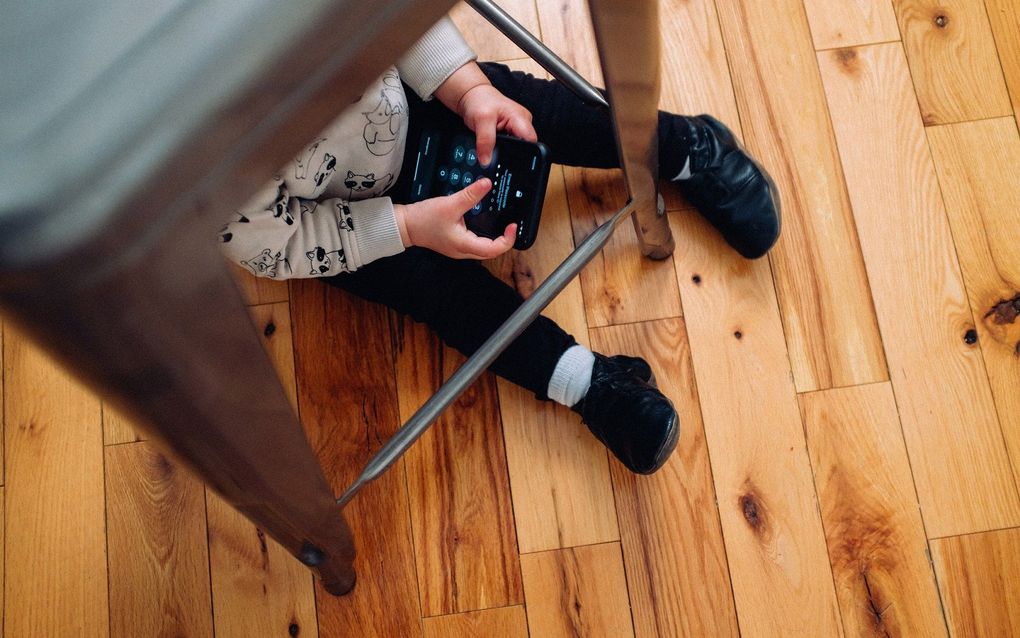Smartphone requires clear choices of parents
14-07-2022
Christian Life
Arco Vuik, RD

Photo Unsplash, charlesdeluvio
Christian Life
The smartphone was introduced 15 years ago. The device has a significant impact on our social life. "It has become more important than ever to use the Bible as the ground for our use of the mobile phone", Henrieke Hoogendijk says. She is a pedagogue from the Netherlands specialising in media.
The smartphone touches all aspects of life, Hoogendijk says. Children use it for their homework or for playing games. Parents jot down their grocery list in it and watch instructions for their renovation projects. "The position of the smartphone in Christian families has been as important as in the rest of society", the pedagogue says.
Has the smartphone been a curse or a blessing?
"The smartphone is a means of which the use coincides with recreational purposes. That makes it complex. The device is a blessing that enriches our life and makes it easier. Think about planning a route or listening to a podcast. The smartphone can also give an extra dimension to existing contacts with friends and family.

But there is also another side. The smartphone is always an attractive alternative for other activities. Thus, constant distraction always lures. Just add to that the fact that the smartphone has been designed to keep the user's attention as long as possible. The sounds, signals of unread messages and the blue checkmarks of WhatsApp continuously require our attention. If we realise that our time is a valuable time of grace, then it becomes immediately apparent that the use of our phone is part of a greater, spiritual perspective."
How did parents respond to the smartphone 15 years ago?
At first, I mainly noticed a startled response. Christian parents sometimes reacted radically with a complete rejection or a thoughtless embracement of the smartphone. For years, I heard parents say: "It just happened to us." In that statement, I heard powerlessness. There had not been much thought about media education. Parents had to teach their children how to use their phones responsibly, even though they had not dealt with that in their own upbringing. Thus, they felt like blind people who had to show their children the way in a world of new shapes and colours. Just imagine.
The attitude of parents has changed over time. The younger generation of parents was brought up with media use. They have experienced the pull of the screen. They realise that media education is not a choice, but a crucial part of a child's development."
How is the state of the exemplary behaviour of parents?
"Many fathers, mothers, grandfathers and grandmothers started using the smartphone at a later age. Some of them are, therefore, still in the process of embracing the device. They mainly focus on the possibilities of the smartphone. Children and adolescents learn at school much about the effects of phone usage. Sometimes, I hear children sighing: "Mom, put that phone away."
On the other side, many parents use the medium with much awareness. Exemplary behaviour of parents is crucial. I think children deserve parents who show them how to use media without being controlled by it; parents who realise that the smartphone can awaken wrong desires in people."
Why is media education so tricky?
"Because the use of media touches on all areas of life. Think about sexual development and questions like: How do you present yourself? How do you protect your privacy? Parents see that media shape their children. They ask themselves how to counterbalance that influence and which boundaries are necessary.
The complex aspect of the smartphone is that it brings the whole big world close by, literally to our skin. In addition, the phone offers easy entertainment. You can just sit down and consume.
Parents also find it difficult that adolescents can lock themselves in their own media world, mainly because they are at a stage of life in which they need much guidance. The lack of connection with their children is something that many parents find hard.
Lastly, parents find media education difficult because some habits have become ingrained over time. Phones are always there, even when you drink coffee together. Therefore, children get used to the constant stream of stimuli and distractions. Parents ask themselves how they can remove this pattern of habits.
Which tips do you have for parents?
"As a parent, be willing to make clear choices together about what you do on your phone? Which apps and games do we allow, and which do we forbid? Explain these choices and show this consequently in your own life. It is essential to focus on the soul of your children, also in their media education. Try to connect Biblical lessons, for example, about loyalty and moderation, to the use of smartphones. Youngsters tend to see the online world as separate from the real world, separate from being Christian.
Do not forget to guide your child when it receives a smartphone for the first time. It is unable to bear that responsibility itself. Make agreements on when the phone can be used and when it cannot and check the use of the phone. Ask questions when you see nasty text messages or nude pictures. Openness is crucial. Be interested in the media world of your child. Only then you can have an effective conversation about phone use in which you can also set boundaries.
As a parent, attempt to protect the quiet moments within the family structure to concentrate on the Bible readings or other books together. God works through His Word, and the Spirit comes in silence. At the same time, God works on His honour and His Kingdom. That is not dependent on our capacities in children's media education."
This article was translated by CNE.news and published by Dutch daily Reformatorisch Dagblad on July 9, 2022
Related Articles





